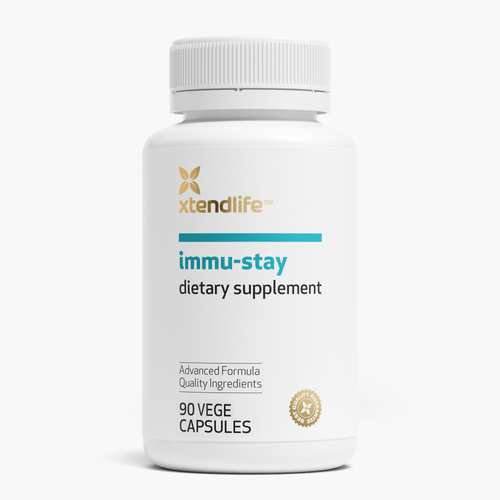The immune system is exactly that - a system, not a single entity. To function well it needs balance and harmony. If you’re hoping for a way to cure a common cold or flu, you’re out of luck, but there are ways to make sure your immune system is strong enough to fight off the bugs before they wage war.
Every part of your body, including the immune system, functions better when it has a healthy foundation based on these principles:
- Eat plenty of fruit and leafy green vegetables
- Exercise regularly
- Maintain a healthy weight
- Minimize stress
- Don’t smoke
- Drink alcohol in moderation
- Get enough sleep
- Practice safe hygiene habits
Eating nourishing foods rich in vitamins is essential for building a strong immune system.
Vitamin C is at the top of the list as an immune system booster. A lack of Vitamin C has even been linked with making you prone to getting sick. A daily intake of Vitamin C is essential, as the human body doesn’t produce it or store it. It has substantial antiviral and antibacterial benefits and is known for its protective aspects in creating host resistance. Foods rich in Vitamin C include spinach, kale, broccoli, kiwifruit, guava, strawberries, oranges, grapefruits and capsicum. Because of its abundance in so many foods, most people don’t need to take a Vitamin C supplement unless they’re not eating enough Vitamin C rich foods.
Vitamin E is a potent antioxidant that helps to fight off infection due to its production of cells that produce antibodies that destroy bacteria. Foods rich in Vitamin E include leafy green vegetables such as spinach, sunflower seeds, almonds and blueberries.
Zinc is one of the busiest minerals in our bodies, it is responsible for over 200 essential enzymatic reactions – including immune function. Zinc is needed to create T and B lymphocytes and macrophages – white blood cells that recognise bugs and fight infection. A powerful antioxidant, Zinc also helps protect cells from free radical damage. Get your zinc fix from mussels, oysters, steak, poultry, eggs and pumpkin seeds.
A proprietary blend of 20 nutrients and herbs
including Zinc, Olive Leaf Extract, Turmeric and Vitamin C for a stronger immune system.
Shop now
Vitamin B6 is crucial to supporting biochemical reactions in the immune system. Foods rich in Vitamin B6 include fish such as salmon and tuna, chicken, green leafy vegetables and chickpeas.
Mushrooms are rich in antioxidants and are recognized for their antiviral, antibacterial and anti-tumor properties. They’re also high in selenium, which has been studied for its ability to reduce the risk of developing a severe flu.
Probiotics and prebiotics support your digestion, and as your gut is 80% of your immune system, if you have imbalanced digestive microbiota your immunity will be severely impacted. Prebiotic foods include onion, garlic, unripe bananas and asparagus, while probiotic foods include fermented foods such as kimchi, kombucha, kefir and sauerkraut. Our digestive health supplements combine prebiotics and enzymes to support balanced gut health.
The colder months are a time for keeping warm and eating nourishing foods. Often getting sick is a warning sign that you’re rundown, stressed, or not taking care of yourself either mentally, physically or both, so make sure you’re fuelling your body with the right food, getting enough rest, and staying active.


 Supplements
Supplements Bundles
Bundles















